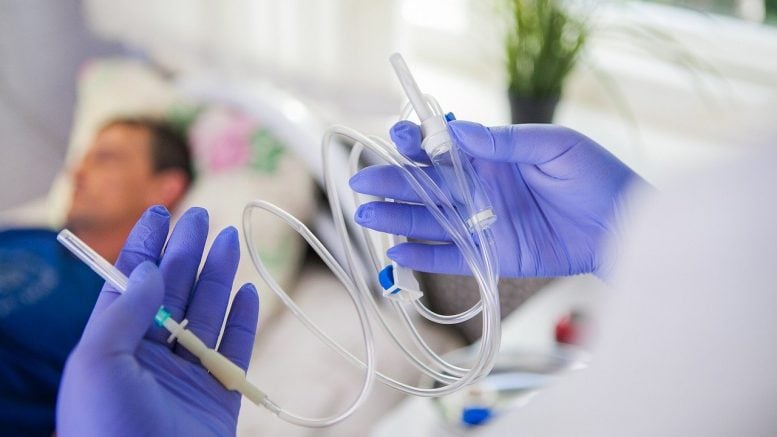On November 20, the U.S. Food and Drug Administration issued an emergency use authorization (EUA) for the drug baricitinib, in combination with remdesivir, for the treatment of COVID-19 in suspected or laboratory confirmed COVID-19 hospitalized adults and pediatric patients two years of age or older requiring supplemental oxygen, invasive mechanical ventilation, or extracorporeal membrane oxygenation (ECMO).
According to the clinical trial of hospitalized patients with COVID-19, baricitinib, in combination with remdesivir, was shown to reduce time to recovery within 29 days after initiating treatment compared to patients who received a placebo with remdesivir. Since this combination of treatments is still new for COVID-19, the safety and effectiveness of this investigational therapy continues to be evaluated. The FDA warns that baricitinib is not authorized or approved as a stand-alone treatment for COVID-19.
“Today’s action demonstrates the FDA’s steadfast efforts to make potential COVID-19 treatments available in a timely manner, where appropriate, while continuing to support research to further evaluate whether they are safe and effective,” said FDA Commissioner Stephen M. Hahn, M.D. “As part of our Coronavirus Treatment Acceleration Program, the FDA continues to use every possible avenue to facilitate new treatments for patients as quickly as possible to combat COVID-19.”
Combination Medications For Treatment Of COVID-19
Combination of treatments from the FDA allows baricitinib and remdesivir to collaborate for COVID-19 treatment.
Baricitinib is a prescription oral tablet medication that is FDA-approved (and sold under the brand name Olumiant) for the treatment of moderately to severely active rheumatoid arthritis. Under today’s EUA, the FDA is authorizing the emergency use of baricitinib, in combination with remdesivir, for the treatment of certain hospitalized patients with suspected or laboratory-confirmed COVID-19.
Remdesivir is an FDA-approved (and sold under the brand name Veklury) intravenous antiviral drug for use in adult and pediatric patients 12 years of age and older and weighing at least 40 kilograms (about 88 pounds) for the treatment of COVID-19 requiring hospitalization. Remdesivir also remains authorized for emergency use for the treatment of suspected or laboratory-confirmed COVID-19 in hospitalized pediatric patients weighing 3.5 kg (about 7.7 pounds) to less than 40 kg or hospitalized pediatric patients less than 12 years of age weighing at least 3.5 kg.
“The FDA’s emergency authorization of this combination therapy represents an incremental step forward in the treatment of COVID-19 in hospitalized patients, and FDA’s first authorization of a drug that acts on the inflammation pathway,” said Patrizia Cavazzoni, M.D., acting director of the FDA’s Center for Drug Evaluation and Research. “Despite advances in the management of COVID-19 infection since the onset of the pandemic, we need more therapies to accelerate recovery and additional clinical research will be essential to identifying therapies that slow disease progression and lower mortality in the sicker patients.”
An Emergency Use Authorization
An emergency use authorization (EUA) is different from an FDA approval. In determining whether to issue an EUA, the FDA evaluates the totality of available scientific evidence and carefully balances any known or potential risks with any known or potential benefits of the product for use during an emergency. And, when used under the conditions described in the EUA to treat COVID-19, the known and potential benefits of baricitinib outweigh the known and potential risks for the drug.
There are no adequate, approved and available alternative treatments to baricitinib, when used in combination with remdesivir, for the treatment of suspected or laboratory confirmed COVID-19 in hospitalized adults and pediatric patients two years of age or older requiring supplemental oxygen, invasive mechanical ventilation, or ECMO.
“Under the EUA, fact sheets that provide important information about using baricitinib in combination with remdesivir in treating COVID-19 as authorized must be made available to health care providers and to patients and caregivers. These fact sheets include dosing instructions, potential side effects and drug interactions. Possible side effects of baricitinib in combination with remdesivir include serious infections, blood clots, changes in certain lab test results and allergic reactions,” – the FDA warns.





Be the first to comment on "Drug Combination For Treatment Of COVID-19"